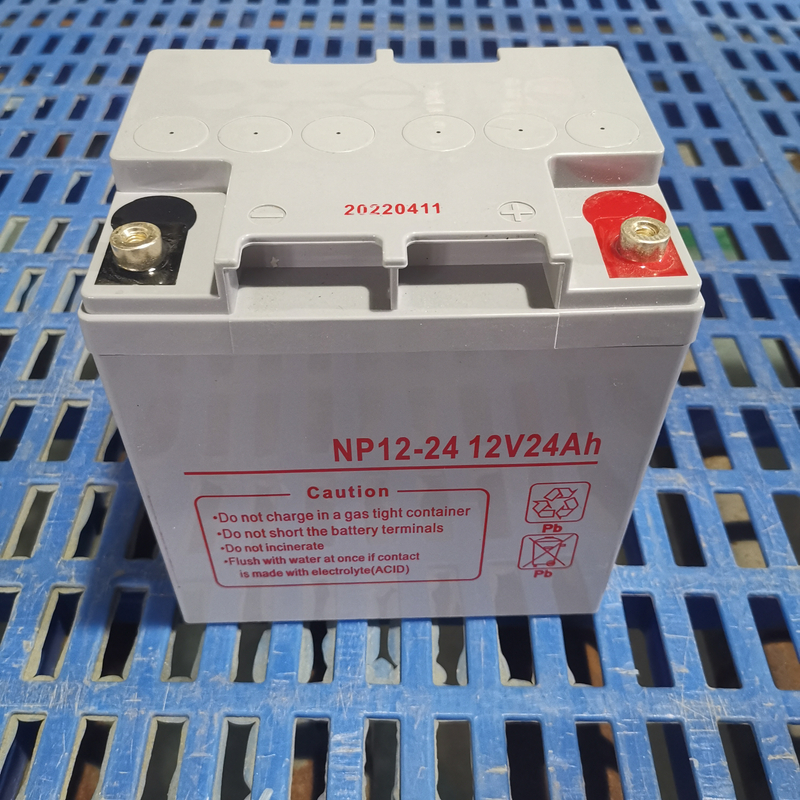- All
- Product Name
- Product Keyword
- Product Model
- Product Summary
- Product Description
- Multi Field Search
Views: 0 Author: Site Editor Publish Time: 2025-10-21 Origin: Site








Finding a reliable lead crystal battery manufacturer can make the difference between a successful energy project and costly setbacks. These advanced battery systems offer superior performance compared to traditional lead-acid batteries, but selecting the right manufacturer requires careful consideration of multiple factors.
Lead crystal batteries represent a significant advancement in energy storage technology. They combine the reliability of lead-acid systems with enhanced durability, longer lifespan, and improved safety features. However, not all manufacturers deliver the same quality or service standards.
The market includes both established companies and newer entrants, each with different strengths and specializations. Understanding what separates a quality lead crystal battery manufacturer from the competition helps ensure your investment delivers the expected returns.
Lead crystal batteries use a unique electrolyte system that replaces traditional sulfuric acid with a crystalline structure. This design eliminates many common problems associated with conventional batteries.
The crystalline electrolyte prevents sulfation, a major cause of battery failure in traditional lead-acid systems. This technology also allows for deeper discharge cycles without damaging the battery, extending operational life significantly.
Temperature tolerance represents another major advantage. Quality lead crystal batteries function effectively in extreme conditions, from -40°C to +65°C, making them suitable for diverse applications across different climates.
Safety improvements include reduced gas emissions and elimination of acid spill risks. The solid electrolyte structure means these batteries can operate in any position without leakage concerns.
A reputable lead crystal battery manufacturer maintains strict quality control throughout the production process. ISO certifications, particularly ISO 9001 for quality management and ISO 14001 for environmental management, indicate serious commitment to manufacturing excellence.
Testing protocols should include comprehensive performance evaluations under various conditions. This includes cycle life testing, temperature performance assessment, and safety validation procedures.
Documentation and traceability systems allow manufacturers to track each battery from raw materials through final assembly. This capability proves essential for quality assurance and warranty support.
Third-party certifications from organizations like UL, CE, or IEC provide additional validation of product safety and performance claims.
Different applications demand specific battery characteristics. Solar energy storage systems require batteries optimized for daily cycling patterns, while backup power applications need batteries designed for standby operation with occasional deep discharges.
Marine applications present unique challenges including vibration resistance, corrosion protection, and compact design requirements. A specialized lead crystal battery manufacturer understands these needs and designs products accordingly.
Telecommunications infrastructure demands high reliability and long service life with minimal maintenance requirements. The manufacturer should demonstrate proven performance in similar applications.
Industrial applications often require custom configurations or specific performance parameters. Manufacturers with engineering capabilities can develop tailored solutions for unique requirements.
Production capacity determines whether a manufacturer can meet your volume requirements and delivery schedules. Established manufacturers typically maintain adequate inventory and production flexibility to handle varying demand.
Technical support capabilities become crucial during system design and installation phases. The best manufacturers provide engineering assistance, application guidance, and ongoing technical support throughout the product lifecycle.
Geographic presence affects shipping costs, delivery times, and local support availability. Manufacturers with global distribution networks often provide better service and competitive pricing.
Research and development investment indicates a manufacturer's commitment to continuous improvement and technology advancement. Companies that invest in R&D typically offer more innovative products and better long-term support.

Initial purchase price represents only part of the total cost equation. Lead crystal batteries typically cost more upfront than traditional alternatives but deliver superior value through longer lifespan and reduced maintenance requirements.
Warranty terms reflect manufacturer confidence in product quality. Comprehensive warranties covering both performance and defects provide protection against unexpected failures and replacement costs.
Operating costs include maintenance requirements, replacement frequency, and energy efficiency. Quality lead crystal batteries minimize these ongoing expenses through reliable operation and extended service life.
Total cost of ownership calculations should include all expenses over the battery's expected lifespan. This analysis often reveals that premium products from established manufacturers deliver better economic value despite higher initial costs.
Juli New Energy exemplifies the characteristics of a leading lead crystal battery manufacturer. The company combines advanced manufacturing techniques with rigorous quality control to produce reliable energy storage solutions.
Their product range covers multiple applications from residential solar storage to industrial backup power systems. Each battery undergoes comprehensive testing to ensure performance meets or exceeds specifications.
Technical support includes application engineering assistance, installation guidance, and ongoing maintenance support. This comprehensive approach helps customers achieve optimal system performance and reliability.
Quality certifications and third-party testing validate product performance claims. This transparency builds confidence and demonstrates commitment to manufacturing excellence.
Evaluate potential manufacturers based on their track record, manufacturing capabilities, and support services. Request detailed specifications, test data, and customer references to validate performance claims.
Consider the manufacturer's financial stability and market presence. Established companies with strong financial foundations provide better long-term support and warranty security.
Sample testing allows direct evaluation of product quality and performance characteristics. Many manufacturers provide evaluation samples for qualified applications.
Partnership approach matters for complex or large-scale projects. The best manufacturers work collaboratively to optimize system design and ensure successful implementation.
Selecting the right lead crystal battery manufacturer requires careful evaluation of multiple factors beyond initial price. Quality, reliability, and support services ultimately determine project success and long-term satisfaction.
The investment in premium products from established manufacturers typically pays dividends through superior performance, longer lifespan, and reduced operational concerns. Companies like Juli New Energy demonstrate how manufacturing excellence translates into customer value.
Take time to thoroughly evaluate potential suppliers, request detailed information, and consider total cost of ownership rather than just initial purchase price. The right manufacturing partner becomes an invaluable asset for your energy storage success.